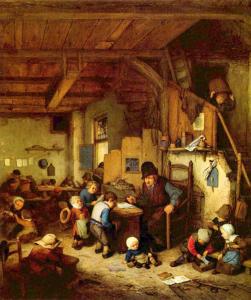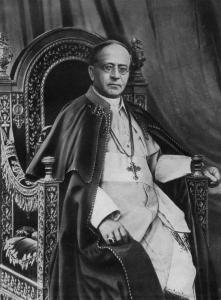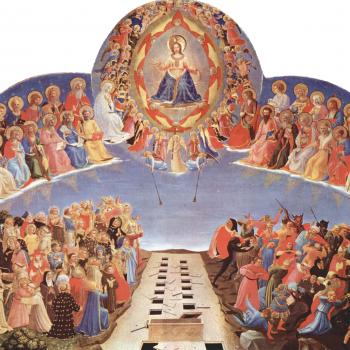The Denver Post reports that two “Republican state lawmakers have introduced a bill seeking to prohibit Colorado teachers from striking and make it so they would face firing, fines or even jail time if they do so anyway.” [1] This wouldn’t be the only example of a law like this. In North Carolina, all public employees are prohibited from striking [2], and those who do are guilty of a misdemeanor. [3]
While the “measure’s chances of becoming law are minuscule,” if it somehow did pass it could put the United States in violation of the International Labour Organization’s Abolition of Forced Labour Convention, 1957 [4], which the U.S. ratified on September 25, 1991. [5] The Convention specifically prohibits imposing forced labor “as a punishment for having participated in strikes.” The Convention would thus be violated every time a striker was sentenced to community service, which is ordinarily considered by convicted criminal defendants to be preferable to actual jail time.
But it is in fashion these days for Americans to be derisive of the requirements of international law, so that sort of forewarning is likely to meet up with a fair number of deaf ears. It will be of interest to some, however, what Catholic social teaching has to say on the subject; and the promulgation of same being the stated mission of this blog, let us proceed to examine the proposed legislation in that light.
 The Catechism tells us that recourse “to a strike is morally legitimate when it cannot be avoided, or at least when it is necessary to obtain a proportionate benefit. It becomes morally unacceptable when accompanied by violence, or when objectives are included that are not directly linked to working conditions or are contrary to the common good.” (Catechism of the Catholic Church (CCC), §2435) [6]
The Catechism tells us that recourse “to a strike is morally legitimate when it cannot be avoided, or at least when it is necessary to obtain a proportionate benefit. It becomes morally unacceptable when accompanied by violence, or when objectives are included that are not directly linked to working conditions or are contrary to the common good.” (Catechism of the Catholic Church (CCC), §2435) [6]
Since the adversaries of the Colorado teachers will be quick to assert that any teacher strike is contrary to the common good, that is a subject that should be considered. As it turns out, the Catechism lays out with specificity what the common good consists of, telling us that it “consists of three essential elements:” [7] (CCC, §1906)
The first is “respect for the person as such.” (CCC, §1907) This means, among other things, that society “should permit each of its members to fulfill his vocation.” Obviously, a balancing of interests is required here. There is the interest of the teachers in fulfilling their vocation as teachers in a manner that is not burdensome. Depriving them of effective bargaining power as to their compensation could easily compel them to seek a different kind of employment. On the other hand, there are the interests of the students in developing their vocations. Teacher strikes undoubtedly interfere with their learning, and cannot be credibly said to be harmless as to their personal development.
But the students also have an interest in ensuring that teachers are adequately compensated. Low pay for teachers hinders the attraction of talent to that profession, and if school boards are empowered to engage in one-sided negotiations with teachers, that is going to place a downward pressure on teacher pay. And the negotiations will be essentially one-sided if the teachers have no remedy, such as a strike, for intransigence on the part of those with whom they are negotiating. Moreover, it will do the students no good at all to be taught by people who are demoralized, and, perhaps, seeking a way to leave the teaching profession. On balance, then, it appears that the interests of both teachers and students are best served if teachers are permitted to strike for better pay or working conditions.
 The second element requires that every person have access to what “what is needed to lead a truly human life:” to include education. (CCC, §1908) Now it is true that students are being deprived of an education so long as a teacher strike lasts. But education also has to be effective if it is going to provide a true benefit. The aforementioned teacher demoralization and narrowing of the teacher talent pool that will arise from stripping teachers of meaningful bargaining power would inevitably have an inimical impact on the effectiveness of public education.
The second element requires that every person have access to what “what is needed to lead a truly human life:” to include education. (CCC, §1908) Now it is true that students are being deprived of an education so long as a teacher strike lasts. But education also has to be effective if it is going to provide a true benefit. The aforementioned teacher demoralization and narrowing of the teacher talent pool that will arise from stripping teachers of meaningful bargaining power would inevitably have an inimical impact on the effectiveness of public education.
“Finally, the common good requires peace, that is, the stability and security of a just order.” (CCC, §1909) But this cannot be properly understood only as peace between citizens. There also must be peace between people and their government. If a strike can be morally legitimate, and the other factors for assessing the public good weigh in its favor, it cannot serve the cause of peace for a strike to be suppressed by government force. But that is exactly what the proposed legislation in Colorado calls for.
From these considerations it is apparent that the common good is best served by allowing teachers to strike when necessary. Of course, society would doubtlessly be better served if such strikes were made unnecessary. But it would require some reforms, which could be applied, with necessary adaptations, to all circumstances where labor-management disputes now take place. Pope Pius XI made a suggestion on how this might be accomplished in his encyclical, Quadragesimo anno. [8]
His suggestion was, basically, that employers and workers in a given industry would form separate associations. The associations would bargain with each other, and, if disputes could not be resolved, the government would step in to resolve it. (Quadragesimo anno, §§91-95) Now the pope only intended a suggestion here, so we need not be chary of making adaptations. In doing so, we should head off at the pass the calumny that the Holy Father was endorsing fascism by his proposal, since there is nothing of nationalism or authoritarianism in it, and is completely workable within a democracy.
But history has demonstrated a seemingly chronic problem with liberal democracy as it is practiced in the United States, that governments are susceptible to representing only the wealthiest interests, leaving us with an effective oligarchy notwithstanding our republican political form. This hardly means that we should switch to a monarchy or even a more authoritarian system, but it does indicate that we cannot expect American governments to be neutral arbiters between employers and workers. Moreover, in the case of public school teachers, government would be a party in any dispute, and so could not also be a judge.
Neutral arbitration, however, can be accomplished, and it is already widely used in the United States to resolve labor disputes, particularly where government employees are involved. One sound method of selecting arbitrators is that each side will select one, and these two will agree on a third. The decision of the arbitrators is legally binding on both sides.
This method has obvious advantages over strikes or lockouts, and it would be advantageous if was practiced everywhere that labor-management disputes can arise. It is, therefore, reasonable to suggest that it become public policy throughout the nation. It certainly would be a better solution than threatening to jail one side of a dispute for exercising the only remedy available to it.
The icon of St. Joseph the Worker is by Daniel Nichols.











